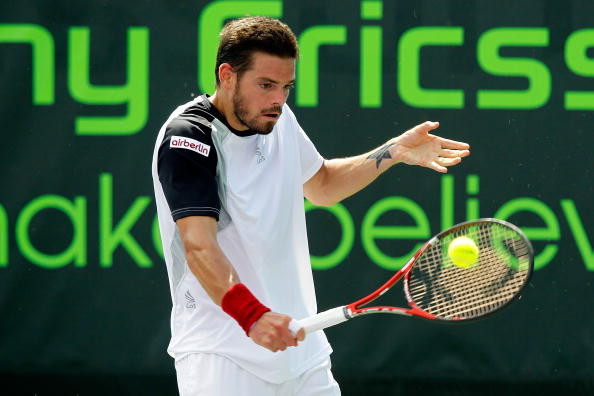Daniel Koellerer calls ATP a 'mafia organisation' that ruined his life

Australian tennis player Daniel Koellerer, who was given a lifetime ban in 2011, has slammed the men's professional tour, calling the Association of Tennis Professionals (ATP) a "mafia" organisation. The former world number 55, who was found guilty of match-fixing by the Tennis Integrity Unit (TIU), was the first player to receive a lifetime ban. He was found guilty of three charges under the Uniform Tennis Anti-Corruption programme.
However, the 32-year-old believes he was unfairly punished through a flawed hearing process. He was of the view that the "big four" of Novak Djokovic, Roger Federer, Andy Murray and Rafael Nadal would never have been treated like he was, and it was only the lower ranked players who were sacrificed during anti-corruption investigations.
"The ATP has destroyed my life", Koellerer said as quoted by Foxsports.
"My house, my wife and my child, everything is gone and I was depressed."
"The ATP would never block Djokovic, Federer, Nadal and Murray. I do not think these players manipulate the system, but if they did it would be suicide for the ATP. The best players are protected. They are too important to be sacrificed."
"I am an eyesore for the ATP. They have sacrificed me to show the other players what can happen. There are protected players and players who the ATP want to get rid of."
"I'm sure that one or more players out of the top 20 manipulate matches, can I testify? No. This is totally a guess on my part. To solve the problem, the betting must be simply suppressed. But obviously it cannot do, because some tournaments are sponsored by bookmakers."
"This is something dirty. This is a mafia. This is something corrupt."
Match-fixing claims in tennis have created headlines in recent times, with the TIU confirming a huge number of matches raised suspicion in 2015. The unit's director of integrity, Nigel Willerton, told Britain's Culture, Media and Sport select committee on 24 February that the number of alerts had increased from 91 in 2014 to 246 in 2015.
© Copyright IBTimes 2025. All rights reserved.





















